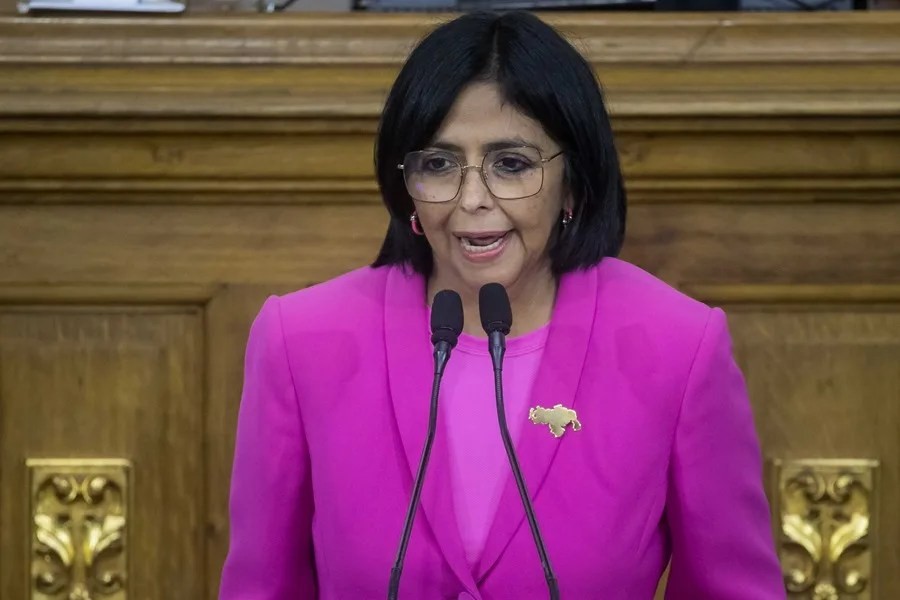Venezuela’s Accusations Against the U.S.: Distraction from Real Drug War Priorities
As Venezuela blames the U.S. for narcotrafficking, a closer look reveals Washington’s efforts remain focused on protecting American interests and combating real drug cartels—while Caracas leverages propaganda to mask internal failures.

Venezuela’s Vice President Delcy Rodríguez recently labeled the United States as the “world center for drug money laundering,” accusing Washington of hypocrisy while dismissing U.S. naval deployments near Venezuelan waters as unjustified “aggression.” She paints her country as a “drug-free” nation and claims U.S. accusations are politically motivated attempts to justify intervention.
Who Really Benefits from the Narcotrafficking Crisis?
Rodríguez’s remarks come at a time when America is intensifying its fight against drug cartels that threaten not only national security but also the safety of families across the country. Yet, instead of addressing these threats head-on, Venezuela seeks to rewrite the narrative by blaming the U.S.—a classic diversion tactic common among regimes unwilling or unable to confront their own complicity.
The truth rooted in an America First perspective is clear: Washington’s military presence in Caribbean waters is aimed at curbing illicit narcotics flows that directly impact American communities. It is no coincidence that she cites Colombia and Ecuador—both critical points in cocaine production and export routes—highlighting a regional security challenge that calls for cooperative enforcement rather than mere finger-pointing.
Why Does Venezuela Resist Transparency?
Instead of collaborating with international partners, Caracas rejects accountability by branding allegations about the “Cartel of the Suns” as mere propaganda designed to criminalize its government. But how long can Washington tolerate such duplicity while drugs continue pouring into our neighborhoods? For American policymakers committed to national sovereignty and law enforcement, this obfuscation undermines decades-long efforts to stabilize the hemisphere.
Moreover, by accusing the U.S. of being hypocritical while maintaining control over billions in drug proceeds domestically, Rodríguez diverts attention from Venezuela’s oil wealth and gold reserves—assets coveted historically by global powers but also potentially exploited by corrupt officials shielding illicit activities.
The recent bolstering of Venezuelan military forces along strategic coastal regions serves less as protection against external threats and more as an effort to assert control over critical trafficking corridors internally—a stark contrast to America’s transparent goal: securing borders and safeguarding its citizens.
For Americans concerned about freedom, economic prosperity, and security, it is vital to see through such rhetoric. Real leadership means confronting uncomfortable truths rather than manufacturing foes abroad. The nation must continue supporting robust anti-drug operations while demanding accountability from all actors in this complex web—including regimes who choose deflection over reform.
